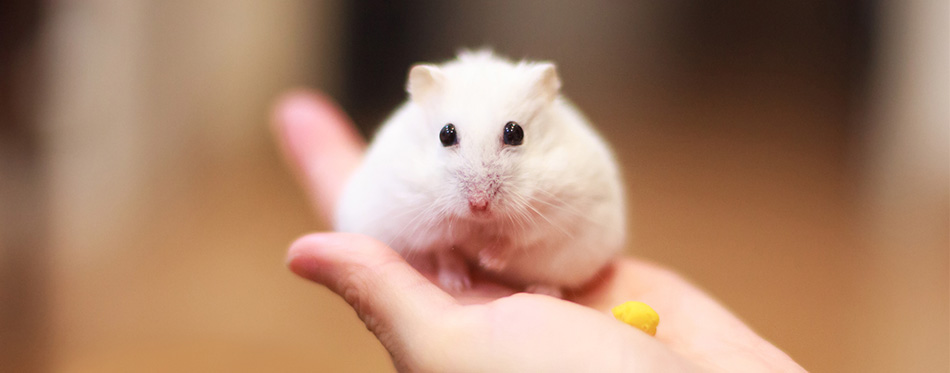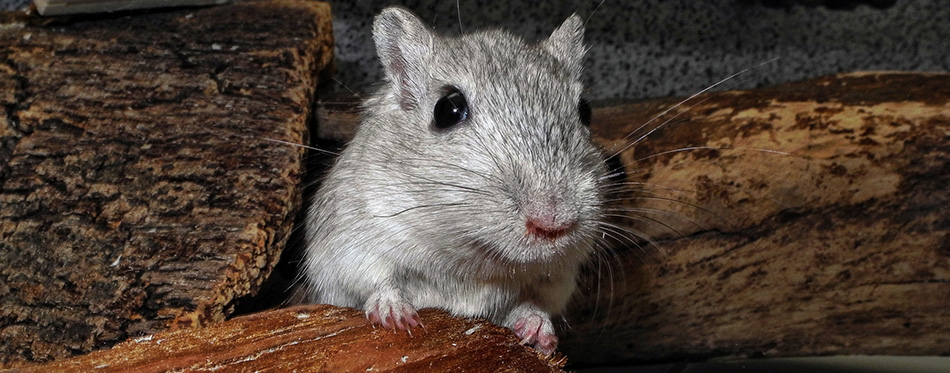While people might think of hamsters and gerbils as similar species, they in fact have a number of notable differences. Although both species hail from the desert originally and are furry, and adorable rodents, they have a number diverse features and needs. It’s important for any potential pet-owner to research their chosen species meticulously and ensure that they can give them the love and care that they deserve. While many might imagine these animals are easy to care for, they have unique lifestyles and needs and thus need their owners to be in the know. Here is a beginners guide to the differences between hamsters and gerbils. We’ll look at their history, housing needs, lifestyle, and lifespan.

History
Pet hamsters are usually Syrian hamsters and their ancestors originally hail from Syria. A pair were captured in the 1930’s for breeding purposes and eventually sent to the US. There are 18 hamster species and usually the Golden or Syrian Hamster are popular pets, or the Campbell Dwarf Hamster. In the wild they are usually nocturnal (so as to avoid predators) and will feed on fruits, vegetation, seeds, or the odd insect. Syrian Hamsters usually live a more solitary life than Gerbils, and are often better alone, than with a pair. If you want a pair of hamsters, opt for Dwarf Hamsters, but ensure they have enough space.
Gerbils are also a small rodent species and in the wild live in colonies. They are thus better suited to company than hamsters. The are around about 110 gerbil species hailing from Africa, Asia, and India. They were brought to the United States in the 1950s but it is illegal to keep them as pets in certain states and thus you need to check the particular legislation where you live. This is because certain areas have a very similar climate to those of gerbils in the wild and officials fear that an escape could lead to the creation of gerbil colonies.
Personality
Gerbils: NB: Very Social Creatures!
Gerbil owners have describes these gorgeous creatures as being inquisitive, active, and intelligent. Thus, they thrive in an environment where their humans interact with them. Owners have noted their fascination in people and thus they like to be involved in everyday life. They are usually diurnal and thus up and active during the day.
As social creatures they need lots of attention and handling. In fact, they adore being held and will enjoy an environment where they are given lots of love and attention. When their humans can’t entertain them, they can however entertain themselves and you’ll often find them knawing, shredding, and digging the nesting materials in their home.
Hamsters: More Solitary, but Need Human Interaction!
Hamsters are usually more solitary creatures than gerbils (especially Syrian or Chinese hamsters) and thus do not need to be kept with other hamsters. In fact, if you want to introduce hamsters it’s best to do so when they are less than 7 weeks old, and best to opt for Dwarf hamsters rather than Syrian or Golden ones, as these do better in groups. Syrian hamsters have been known to fight with others and thus are better on their own (but they of course still need human interaction!)
Hamsters are usually pretty docile creatures, but will be friendly to their humans. However, they can also be prone to stress and a condition known as ‘cage rage’ can be found in hamsters who live in cages that are too small. This can cause them immense distress. Always opt for bigger cages and give your hamster a lot of attention and time to run around in a safe space.
Hamsters are nocturnal creatures and will thus usually sleep during the day and become more active at night. This is a trait that they adopted to avoid predators and even domesticated hamsters usually follow this pattern.

Ease of Care
While many might think that rodents are a great starter pet for children due to their size, these creatures in fact need a lot of care and support and thus should only go to owners who know how to care for these species. It’s imperative that you have the time and energy to spend time with your hamster or gerbil, clean their homes every week, and source fresh foods for them as well as their seeds. If you opt for a gerbil it’s essential that you can look after more than one, as they need that social companion in their life.
While they might be small animals, they need an abundance of love and care and are thus not suitable for people who cannot invest time and energy into an animal.
Housing
Hamsters
At minimum you need to opt for a 2.5 foot cage with a solid base. Mesh is best so that it is highly ventilated. However, if you have more than one hamster you will need to opt for a far larger cage. They will need a water bottle (that is filled with fresh water daily), comfortable non-wood bedding (like wood or paper), chew toys, and a shaded area when hamsters want to hibernate during the day. You will need to clean their home week to ensure it is kept super clean! This is paramount to their health and well-being. For more options, check out our detailed review of the best hamster cages.
Gerbils
Since you will probably have a few gerbils, you need to opt for a much bigger tank. It’s usually recommended that you opt for a 10-gallon tank for every 2 gerbils. Thus, 4 gerbils will need a 20-gallon tank, and 6 will need a 30-gallon tank. You will want to fill their homes with comfortable bedding, which they can nest in, opt for corncob or Carefresh bedding for ultimate comfort and health. Never opt for wooden bedding like pine or cedar bedding as this can cause a number of health issues. Opt for unscented tissue as a safe nesting material option. The commercial stuff can cause them harm and they can get caught in it! Find out more about hamster bedding here.
They will also need a few water bottles (especially if you have a few gerbils), a food bowl, and a wheel. Take a look at our review of hamster wheels for more options.
NB: You should buy gerbils a SOLID EXERCISE WHEEL. Since they have tails, they can get stuck in the gaps of a conventional wheel.
You will need to clean hamster and gerbil homes regularly (at least every week) to ensure that they stay healthy. Hygiene is super important when it comes to pet health! It might be a good idea to opt for another cage to put them in while you’re cleaning their usual cage. Make this a serious part of your routine, as it is paramount to their health.
Lifestyle
Hamsters are nocturnal and will thus usually sleep during the day and be active at night. However, they can bond with their owners and the best time to engage with them is during the early evening, or early morning.
Some species of gerbils on the other hand are diurnal and will thus be awake during the day. Since they are super social creatures, they should always be kept in pairs (2 males from the same family work well together, as do 2 females from the same family work well together!) They also love being around humans and will enjoy being in a place where they can watch and spend time with their humans.
Both species thrive on a simple diet that consists of fresh water, fortified foods, seeds, veggies, and fruit. Always consult your vet when deciding what natural fruits and veggies to feed them to ensure that they are getting a healthy and balanced diet. Head over to our review of hamster food for more choices.

Lifespan
Unfortunately, rodents do not usually have the longest life span, when it comes to domestic pets. Gerbils will usually live from 3-5 years, however ensuring that they are healthy, well-fed, clean, and happy can go a long way in maximising their life duration.
Hamsters usually live for a shorter duration than gerbils and their lifespan is usually 2-3 years.
Hamsters and gerbils can make amazing pets for any animal lover. However, despite being small, they have a lot of unique needs and thus need a lot of attention and love. While gerbils are more social and thrive from social interaction with other gerbils and humans, most hamsters (especially the Syrian hamster) prefer a more solitary lifestyle. However, they also thrive on human attention and thus their humans should be hands on and give them a lot of attention and care.
Both animals, despite being small, can fill your life with a lot of love.

